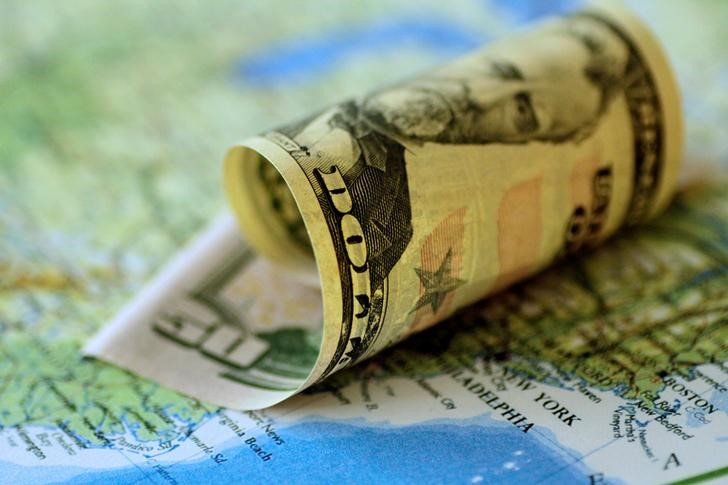By Shinichi Saoshiro
TOKYO (Reuters) - The dollar skidded to a three-year low against its peers on Thursday after caving on comments by U.S. Treasury secretary Steven Mnuchin that he welcomed a weaker currency, while the euro was firm ahead of the European Central Bank's policy decision.
The single currency extended its overnight rally to $1.2425, up 0.15 percent and going as high as $1.2428, its strongest since December 2014.
The dollar slumped after Mnuchin told the World Economic Forum in Davos on Wednesday that "obviously a weaker dollar is good for us as it relates to trade and opportunities." His comments were seen by markets as a departure from traditional U.S. currency policy.
U.S. treasury secretaries have been repeating that the strong dollar is in the national interest since the late 1990s, when Robert Rubin held the job in the Clinton administration.
The greenback had already been on the defensive on trade protectionism worries fanned by U.S. President Donald Trump's decision to impose steep import tariffs on washing machines and solar panels earlier in the week.
"Last week the dollar was under pressure on expectations towards the European Central Bank and Bank of Japan normalizing monetary policy, but the bear trend has entered an entirely new phase after Mnuchin's comments," said Yukio Ishizuki, senior currency strategist at Daiwa Securities in Tokyo.
The U.S. currency was 0.1 percent lower at 109.105 yen, after sinking 1 percent the previous day to a four-month trough of 108.965.
The dollar index against a basket of six major currencies stretched overnight losses to plumb 89.064, lowest since December 2014.
The immediate focus was on the ECB's policy setting meeting later in the global day as markets look for any signs that the central bank is worried about the rapidly appreciating euro.
The euro zone economy may be roaring ahead though the expectation is that a rapidly strengthening euro may see ECB President Mario Draghi pour cold water on the view the bank is speeding towards an interest rate hike.
"The ECB could curb euro strength if it downplays the prospect of early monetary policy normalization and warns against a rising currency," said Masafumi Yamamoto, chief forex strategist at Mizuho Securities in Tokyo.
"Such a stance by the ECB could be seen as a joint effort to verbally intervene after the BOJ made it clear earlier that it does not intend to normalize policy any time soon."
The BOJ kept monetary settings unchanged as expected on Tuesday and Governor Haruhiko Kuroda hosed down market speculation of a shift away from ultra-easy policy later this year.
Kuroda's comments, however, did little to arrest the yen's appreciation against a beleaguered dollar.
"Some players are likely to lighten their long euro positions if the ECB shows concern about the currency's strength. But even such comments probably won't be enough to halt ongoing dollar weakness," Ishizuki at Daiwa Securities said.
The Australian dollar traded at $0.8054 advanced to a four-month high of $0.8086.
The Canadian dollar reached C$1.2316 per dollar, its strongest since late September.
A rally in crude oil prices has given an extra lift to commodity-linked currencies like the Australian and Canadian dollars.
The New Zealand dollar was 0.55 percent higher at $0.7381, but off a five-month peak of $0.7437 after data showed the country's consumer prices rose at a slower-than-expected pace in the fourth quarter.

Upbeat UK employment data, on the other hand, helped lift the pound to $1.4275, a fresh 1-1/2-year top.